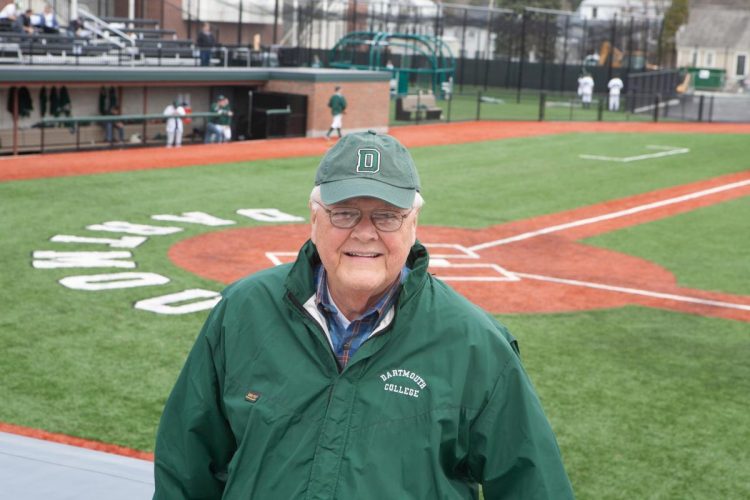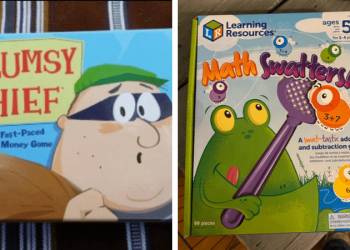At the first slow-tempo notes of the Marine Hymn from a solo trumpet, I cried. This was the Oct. 26 memorial for Jim Wright, Marine, president emeritus of Dartmouth, champion of education for veterans, who died Oct. 10 at 83 after an ambush by cancer last spring. Jim was proud that he was the only Marine, a lance corporal, who became an Ivy League president.
The memorial reviewed 53 years of hard work by Jim at Dartmouth as a history professor, administrator and president. That was Dartmouth. The Marine Jim Wright in 2005 made his first of dozens of visits to wounded men and women at military hospitals—Bethesda, Walter Reed. Jim retired as president in 2009. The Marine Jim Wright did not stop.
Jim discovered that the GI Bill benefits for college then were “inadequate,” in the vocabulary of an Ivy president seeking allies. “Pitiful” is the term an obscure columnist can invoke to describe the benefits. At Bunker Hill Community College in Boston, where I worked, veterans working full-time could not cover the costs even for community college.
Jim decided in February 2008 to create a better GI Bill. With his day job, then, as Dartmouth president, with his citizen efforts traveling from Hanover, N.H., to military hospitals in Maryland, Texas and California, Jim enlisted two more Marines: then U.S. senators Jim Webb and John Warner. The three began to draft a new GI Bill, and in July 2008, President George W. Bush signed the bill. Five months from drafting a bill to signing by the president is beyond astounding, with or without a day job as a college president and visits to the wounded at military hospitals.
Without Jim, millions of Iraq and Afghanistan veterans or their families, 613,877 in 2021, would not have the Post-9/11 Yellow Ribbon GI Bill and benefits including tuition, a living allowance and textbooks. Without Jim and new veteran counselors he enlisted with the American Council on Education, hundreds of severely wounded veterans at Walter Reed and Bethesda and other military hospitals might not have found counselors in their rooms to discuss life after the hospital, including college.
Because of Jim, John Around Him, a Lakota, in my very first College Writing 1 course in 2007 at Bunker Hill, became one of the 66 Iraq/Afghanistan veterans to graduate from Dartmouth since 2007. After graduation in 2011, Jim joined my wife, Betsy, and I and John’s family for the Native American ceremony. John’s family gave Jim and me each a Lakota quilt. Mine is on the bed behind me. Another parent of a 2011 graduate, Louise Erdrich, Dartmouth ’76, member of the Turtle Mountain Band of Chippewa, and Pulitzer Prize–winning novelist, spoke and gave braided sweetgrass to us all.
John’s first essay was better than any I have written, then or now. “Try Dartmouth,” I had told John in D-118, our windowless basement classroom at Bunker Hill. “This essay is excellent. We’re a stepping-stone, not a destination. You have to go. Dartmouth is chartered for Native Americans.”
With exhorting, pleading, exasperation, I convinced John to write to Dartmouth admissions to see what he could learn. Dartmouth replied with withering condescension. Perhaps a mistake. I convinced John to try again. The same result. That this made me look like an idiot was a motivator. Then, too, when my people, preppy Ivy Leaguers, are jerks to others, I stick up for the others.
I looked up the president of Dartmouth, found his email and wrote, applying all I knew of the full force of rhetoric and expository writing. “We’re not demanding admission. This is an inquiry. John is Lakota. I thought Dartmouth was for Native Americans. And he’s an Army veteran. He drove a tank in the invasion of Baghdad. Can’t Dartmouth be courteous?”
Jim wrote back. He explained that he was a veteran and that Dartmouth wanted to enroll more veterans. A journey began, with potholes still ahead. John drove to Hanover. No favors. John was qualified to apply to Dartmouth. I have no idea still how he learned to write so well back home, on the Pine Ridge Reservation in South Dakota. One day in a book, not a column, I can show the path to John’s completed application in the fall. I did not understand what I had set in motion. Being accepted at Dartmouth was inconceivable to John. Why was I setting him up for another slammed door? John did include in his application another excellent essay he had written.
Seven months after John and I had first discussed the college, John completed and submitted his application to Dartmouth.
We did not hear from John that winter as the Dartmouth admission announcement date came and went. One week. Two weeks. My lesser angels seized me again. Were we back to the Ivy condescension? I wrote Jim. “Accept John. Don’t accept John. Can’t Dartmouth give him an answer?”
Jim replied. “That’s odd. We accepted John three weeks ago, and we have not heard from him,” Jim wrote.
Two faculty friends who had helped John and me went to the director of the Veterans Center. We discovered that John was getting out of a class downstairs in 10 minutes. The four of us staked out the class. John blushed and hung his head when he saw us.
I had missed the point again. John was certain he could only fail at Dartmouth. Acceptance? Rejection was quicker. The next journey began, showing John he would succeed and that Dartmouth had support and help for all students. “Yes, the work begins,” said James Washington, the Dartmouth admissions officer I had met. “We have to create an on-ramp.” We had six months before the Dartmouth fall term began.
Again I learned. An on-ramp. An English major, I groped to amplify the metaphor. Yes, entering Dartmouth as a transfer was joining the Indianapolis 500 on a bicycle at lap 250. With Dartmouth’s help, including more visits, John and his team at BHCC made their way, and John enrolled. John completed the first semester. All I knew was how I hoped he would feel during that semester. Again, I had missed the point of how worried he was.
A month into the spring semester, a year and a month after John had handed in his first Bunker Hill essay, John wrote to us, his BHCC team, “OK. Now I know I can do this.”
John visited BHCC often and spoke with more students, more veterans. We, his BHCC team, talked about how encouraging him to enroll at Dartmouth had taken three of us hours and hours and weeks and weeks. “John, UMass Boston may be the right place for many students here. We could have helped 10,000 of them in the time we spent with you on Dartmouth,” we said. “Can you give us some advice? You are succeeding at Dartmouth. Could we have moved a bit more quickly?”
John thought for a minute. He looked at us. “Nope,” he replied.
BHCC students have gone to Amherst, Tufts, more to Dartmouth, MIT, Brown, Yale, Mount Holyoke, Wellesley, UMass Boston, UMass Amherst. I hope I have been wiser. John’s “Nope” is where I know to begin.
Fifteen years later, watching Jim Wright’s memorial, Betsy and I both had tears for the Marine Hymn, for taps, for Jim. Betsy had cancer for many years. In my many conversations with Jim about veterans and college, he always first asked about Betsy.
After the memorial, I remembered a story that made Jim laugh again and again.
John Around Him returned to Bunker Hill a few years after his graduation from Dartmouth. He was a teacher for at-risk high school students, just as he had planned going to Dartmouth. My hope for the meeting was to urge veterans and other students to challenge their assumptions about what the future could bring.
“John, you are a Dartmouth graduate. You are a teacher, as you planned. Do you remember the day here at BHCC when I first suggested you check out Dartmouth?” I asked.
“I do,” John replied. Deadpan. No further comment.
“Would you tell the students what you thought?”
John looked up at the classroom full of students. “I thought Professor Sloane was out of his [expletive deleted] mind.”
Source by www.insidehighered.com










